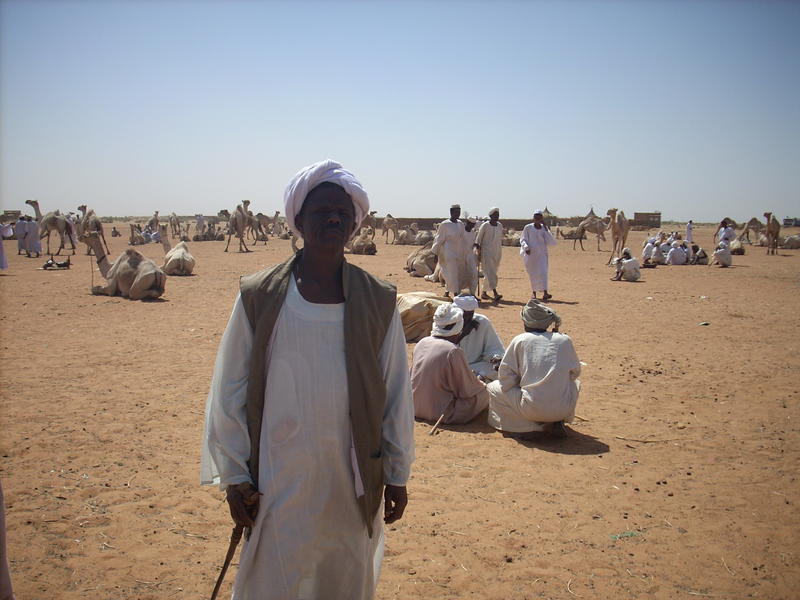Water users associations in the NEN [Near East and North Africa] Region: IFAD interventions and overall dynamics. [Project report submitted to IFAD by IWMI]
Wells and illfare: an overview of groundwater use and abuse in Tamil Nadu, South India. IWMI-TATA Water Policy Research Program Annual Partners' Meet, 2002
Conflits politiques ou politisation des conflits liés au pastoralisme ?
Date: juillet 2017
Source: Foncier & Développement
Par: Jean Huchon, Ken Peter Otieno, Blasius Azuhnwi
La gestion des conflits est au centre des attentions lorsqu’il est question de pastoralisme. Une acceptation semble même se généraliser : les conflits seraient inhérents au pastoralisme. Au pire, il les engendrerait, au mieux, il les exacerberait. Cet article propose dans sa première partie, des clés d’analyse pour une compréhension des dynamiques à l’origine de ces conflits.
Compensation for Expropriated Community Farmland in Nigeria:
In Nigeria, the recurring impoverishment and other negative socioeconomic impacts endured by landholders affected by expropriation are well-documented and call into question the Land Use Act’s (LUA) effectiveness in protecting local land rights. The World Bank’s Land Governance Assessment Framework found that, in Nigeria, “a large number of acquisitions occurs without prompt and adequate compensation, thus leaving those losing land worse off, with no mechanism for independent appeal even though the land is often not utilized for a public purpose”.
Land access and livelihoods in post-conflict Timor-Leste: no magic bullets
In Timor-Leste, customary institutions contribute to sustainable and equitable rural development and the establishment of improved access to and management of land, water and other natural resources. Drawing on multi-sited empirical research, we argue that the recognition and valorization of custom and common property management is a prerequisite for sustainable and equitable land tenure reform in Timor-Leste.
Multi-Functional Lands Facing Oil Palm Monocultures: A Case Study of a Land Conflict in West Kalimantan, Indonesia
This paper presents an ethnographic case study of a palm oil land conflict in a Malay community in West Kalimantan, Indonesia. The conflict occurred in the preparatory phase of a large-scale plantation, before any oil palms were planted. After protest from local communities, the project was abolished. This case enables an empirical enquiry of land tenure as well as the meaning of land and associated resources for people’s livelihoods in a pre-plantation situation.
Contested Land: An Analysis of Multi-Layered Conflicts in Jambi Province, Sumatra, Indonesia
In the lowland areas of Sumatra, conflicts over land and natural resources are increasing as fundamental land use transformation processes take place and the region is gradually integrated into globalized markets. Set against the background of the conflict arena of Bungku village, Jambi province, this paper describes and analyzes the struggle for land between a group of indigenous people, the Batin Sembilan, and an oil palm company, PT Asiatic Persada.
Land and property disputes impeding return and reintegration
A survey conducted by UNHCR in 2009 in IDP camps in North Kivu shows that access to land is the second factor after security which prevents people from returning to their zone of origin.
Three Faces of Shafa. Land Ownership on Trial in Ningarhar
L’étude de Qasimabad, un district urbain, de Shahidano Meena, un district semi-urbain, et Achin à Shinwari, un district rural, dans la province de Ningarhar, permet d’analyser le rôle du shafa (droit coutumier et islamique du voisinage) dans l’accaparement foncier (land-grabbing) et, par extension, dans le développement tant urbain que rural.
Existe solução justa para o caso do Jardim Botânico do Rio de Janeiro? Is there any just solution for the case of Botanical Garden of Rio de Janeiro?
O objetivo deste artigo reside na análise do caso do Jardim Botânico da cidade do Rio de Janeiro, onde, ao longo do tempo, se instalou a Comunidade do Horto, por meio de ocupações consolidadas em área da União Federal. A questão encontra-se judicializada ea partir de processos iniciados nos anos 1980 (nos quais a própria União é parte autora) que visaram à retirada dos moradores.
Violência e projetos de vida em conflitos pela posse da terra
Neste artigo, apoiados em referenciais empíricos retirados das lutas pela posse da terra, sugerimos que, como instrumento, a violência parece ser caracterizada pelo fato de ser uma forma especial de lidar com a questão da anomia. Isso admitido, propomos que os mecanismos de produção e de reprodução da violência são mecanismos de produção e de reprodução da heteronomia da vontade. É o que nos coloca a importância de uma discussão sobre os projetos de vida. Palavras-chave: Violência. Conflitos pela terra. Projetos de vida. Imaginário social.



